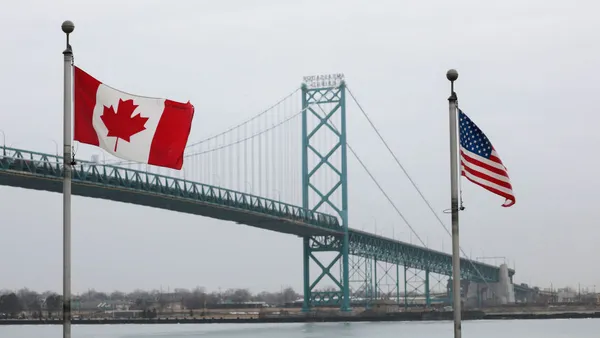Dive Brief:
-
Many sellers, in the years after a divestiture, achieved higher growth in earnings before interest, taxes, depreciation and amortization (EBITDA), according to a PwC study of U.S. divestitures from 1998 until 2017.
-
The share of divestitures spurring EBITDA growth rose during the period of the study, reaching 60% in 2017, PwC said, noting that "companies shed non-core and underperforming assets that dragged down valuation and used proceeds from those sales to fuel growth."
- Companies that divested during recessions focused on core businesses and increased cash flow, especially firms that faced earnings or cash flow pressure, PwC said.
Dive Insight:
A rebound in M&A that started during the second half of 2020 will probably accelerate this year, as companies whose business models were upended by COVID-19 look to small- or medium-sized transactions to help drive a transformation, according to another PwC report.
The pool of sellers will probably grow, including businesses that have fallen into distress during the pandemic and companies looking to sell non-core assets amid high valuations, PwC said.
Among deal-making, divestitures will probably increase in 2021, PwC said. Energy companies facing pressure from environmental groups are reassessing ownership of natural gas pipelines, while chemical companies are restructuring in response to low oil prices.
Banks are reconsidering their involvement in some geographic markets as well as in such business lines as farm insurance and insurance brokerages, PwC said.
"Consolidation will continue, but there’s growing confidence that a key component to value creation includes divesting businesses that can best succeed elsewhere," PwC said.
Large divestitures tended to benefit sellers most, according to the PwC study of such transactions.
"A seller parting with a larger piece of its company stands to generate greater proceeds to reinvest in core businesses, bring more scale to corporate development opportunities and free up time, capital and other resources to invest in areas where the business is better positioned to grow," the study wrote.
Companies also benefited by selling assets to acquirers in other industries, PwC said, adding that cross-border divestitures can yield benefits despite logistical, regulatory or other challenges.
"Roughly the same percentage of companies that divested to non-U.S. buyers saw increased EBITDA afterward as those that divested to U.S. buyers," according to PwC. "In both cases, more than 60% saw growth."














